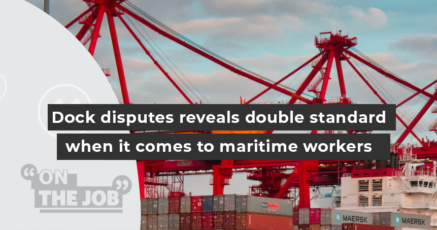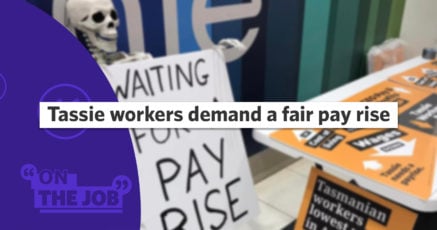Union members have spoken and the Fair Work Commission (FWC) has heard their message loud and clear: it’s time for a pay rise that will make a difference.
The FWC has decided to increase wages for a quarter of Australian workers – 5.2 per cent for those on the minimum wage and 4.6 per cent or $40 per week for those reliant on award wages, whichever is higher.
It means that full time workers on the minimum wage and low paid award workers see an extra $40 a week in their pockets.
Workers in unions have fought tirelessly for a meaningful wage increase and the FWC’s decision is the result of their hard work according to the Australian Council of Trade Unions secretary Sally McManus.
“If it were not for unions, with employers pushing for big real wage cuts, Australian working people and their families would see no relief from cost of living pressures,” she said.
McManus was quick to point out that the FWC’s decision still left many Australian workers facing a real wage cut as inflation continues to force prices to climb for essentials like petrol, food and energy.
“All workers affected by this decision are still getting a real wage cut, however, the cut they’re going to get is very small compared to what they would have got of employers got what they wanted,” she told the ABC’s 7.30 program.
The Australia Institute chief economist Richard Denniss told On the Job that while he was relieved to see the minimum wage rise in line with inflation, he shared Sally McManus’ frustration that it didn’t go far enough.
“I’m disappointed that we did the bare minimum on the minimum wage,” he said.
We need real wage growth in Australia. The Reserve Bank has been saying that and Treasury’s been forecasting that for some time. You don’t get real wage growth, if you don’t give people wage rises that are bigger than the rate of inflation.”
Richard Denniss
The Australia Institute, Chief Economist

Union members have maintained that the lack of real wage growth is hurting the Australian economy and needs to be addressed urgently. Despite low unemployment, high productivity and record profits, labour’s share of GDP is at a record low and Australian workers have faced a decade of record low wage growth capped by ongoing real wage cuts.
McManus called for an overhaul on how Australia deals with the issue of wages.
“This Annual Wage Review is one tool we have to generate wage growth, but it only affects one in four workers – we need wage growth across the economy.
“Clearly the current system is failing. It is unable to deliver wage increases despite low unemployment, high productivity and high profits. Working people are feeling the serious consequences of nearly 10 years of inaction by the previous Government,” McManus said.
“Our country needs to take a fresh look at this problem and address it. It is not acceptable that working Australians and their families continue to go backwards while big business does so well”.
“We cannot be satisfied with a wage setting process that leaves minimum wage workers living in poverty and delivers real wage cuts for the average worker,” she said.
Richard Denniss agreed that the FWC’s decision is just one win in a bigger battle to ensure workers get a better deal on wages.
“This is a decent sized pay increase for a bunch of the lowest paid workers, despite employer groups saying that they should actually suffer real wage cuts. I’m glad to hear that we’re no longer outsourcing economic management to CEOs,” he said.
“I still think we’ve got a lot of work to do, in making the case that the rising profit share in Australia is doing more to fuel inflation than workers demanding decent wage rises”.








SHARE:
Unions win pay rise but it’s just the start for wage justice